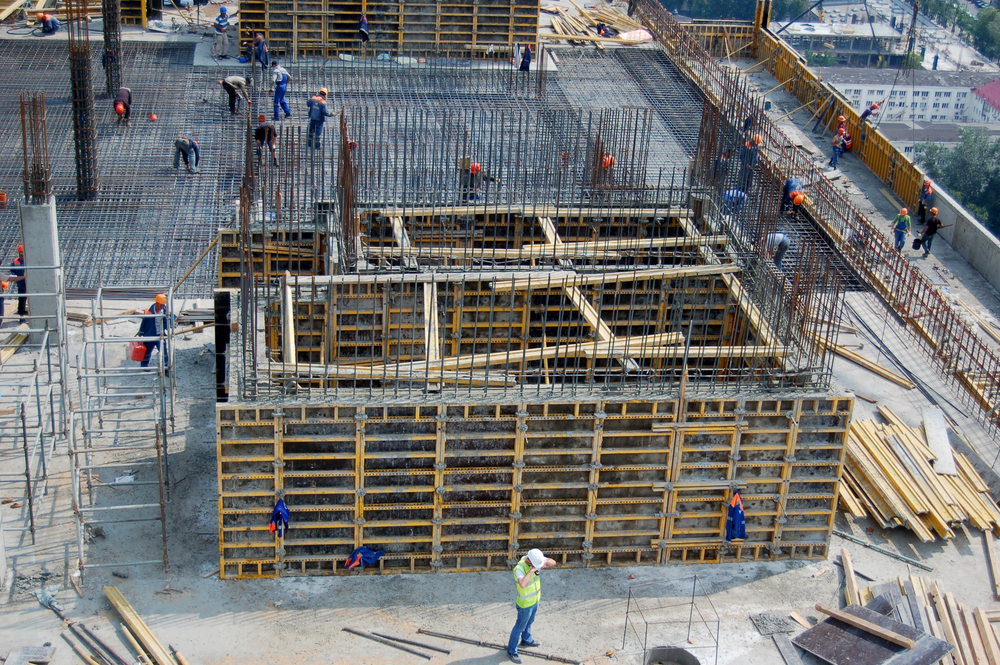
Institutional construction projects in Pennsylvania require a high level of precision, foresight, and coordination. Whether it involves building schools, hospitals, government facilities, or universities, these projects tend to be complex due to strict regulatory requirements, significant budgets, and community impact. Proper institutional construction planning is the cornerstone of ensuring the project’s success, minimizing risks, and delivering a facility that serves its intended purpose effectively. From selecting the right construction contractors to navigating Pennsylvania-specific regulations, a well-thought-out strategy is essential. Below, we explore the top considerations that can determine the outcome of your project.
Understanding Pennsylvania’s Regulatory Landscape
Institutional construction in Pennsylvania is governed by a mix of federal, state, and local regulations that directly affect project planning, timelines, and costs. Before breaking ground, stakeholders must ensure compliance with building codes, zoning laws, labor requirements, and environmental policies.
Pennsylvania’s Uniform Construction Code (UCC) provides the baseline for construction standards and safety measures. However, depending on the county or municipality, additional zoning rules, land-use restrictions, and local permitting processes may apply. For example, projects within Philadelphia or Pittsburgh often face stricter historical preservation guidelines, especially if the institution is near culturally significant landmarks.
Environmental regulations are equally critical. Construction teams must address stormwater management, erosion control, and site impact mitigation, all governed by agencies like the Pennsylvania Department of Environmental Protection (DEP). Failure to comply can lead to costly delays, fines, and even legal disputes. Engaging experienced construction contractors who are familiar with these regional rules can save significant time and resources during the planning process.
Additionally, institutional projects funded by public money often require adherence to Pennsylvania’s prevailing wage laws. This legislation dictates specific pay rates for workers, directly influencing labor costs and contractor selection. Integrating these considerations early in the planning phase ensures your project aligns with regulatory expectations and avoids compliance challenges later on.
Choosing the Right Construction Contractors
Selecting qualified construction contractors is one of the most critical decisions in planning institutional construction. These projects are typically large-scale, require specialized expertise, and involve collaboration among multiple stakeholders. In Pennsylvania, the quality of your contractor’s experience can determine whether your project stays on time, within budget, and in compliance with regulations.
Begin by evaluating a contractor’s portfolio of institutional projects. A proven track record of successfully delivering schools, hospitals, or government facilities demonstrates the technical know-how needed for complex builds. In addition, prioritize contractors who understand Pennsylvania-specific permitting processes and labor laws, as this expertise helps streamline project execution.
It’s also important to assess the contractor’s project management capabilities. Institutional projects demand precise scheduling and resource allocation, often requiring coordination with architects, engineers, municipal officials, and community representatives. Contractors with a history of managing large teams, addressing unforeseen challenges, and maintaining open communication channels add immense value.
Bidding strategies also play a role. While cost-effectiveness matters, selecting the lowest bidder can be risky if the firm lacks institutional experience or regional familiarity. Instead, consider factors such as reputation, safety record, and financial stability alongside pricing. A balanced approach helps ensure quality outcomes without jeopardizing timelines or compliance.
Finally, partnering with a contractor who embraces modern technologies can give your project a competitive edge. Pennsylvania’s institutional construction sector is increasingly leveraging tools like Building Information Modeling (BIM) for 3D visualization, clash detection, and project optimization. Choosing a tech-savvy contractor can improve efficiency, reduce errors, and enhance collaboration across the board.
Budgeting and Financial Planning
Institutional construction projects involve significant financial commitments, making robust budgeting strategies a critical component of the planning process. In Pennsylvania, construction costs vary depending on location, labor requirements, and regulatory demands, all of which must be factored into initial estimates.
Start by developing a comprehensive cost analysis that accounts for land acquisition, permitting fees, design expenses, materials, labor, and contingency funds. Working closely with construction contractors and financial consultants ensures you accurately forecast both direct and indirect costs. Given Pennsylvania’s prevailing wage laws and union labor dynamics, labor expenses often represent a substantial portion of the overall budget.
Funding sources also play a significant role in shaping the project’s financial framework. Many institutional builds are financed through a combination of public funds, grants, and private investments. When public money is involved, stakeholders must navigate additional oversight and reporting requirements, further reinforcing the need for transparency in financial planning.
Inflation, material shortages, and supply chain disruptions have also impacted construction timelines and budgets across Pennsylvania in recent years. Proactive planning includes incorporating escalation clauses and contingency reserves to protect against unexpected cost fluctuations. In addition, collaborating with local suppliers and contractors who have established networks can reduce procurement delays and price volatility.
For institutions seeking long-term cost savings, sustainability considerations are becoming increasingly important. Incorporating energy-efficient systems, green building materials, and renewable energy solutions not only reduces operational expenses but may also qualify your project for Pennsylvania-specific incentives or federal funding programs aimed at promoting environmentally responsible construction.
Managing Timelines and Project Coordination
Institutional construction projects in Pennsylvania are often subject to tight deadlines, especially when linked to public funding or community needs. Effective scheduling and coordination are essential to ensure smooth execution from start to finish.
During the planning phase, work with your construction contractors to create a detailed project timeline that accounts for every stage, from site preparation and permitting to final inspections and handover. Pennsylvania’s permitting processes, particularly in urban areas, can sometimes lead to delays if applications are incomplete or noncompliant. Establishing early communication with local authorities helps reduce bottlenecks.
Project coordination goes beyond timelines. Institutional construction typically involves diverse stakeholders, including school boards, hospital administrators, architects, engineers, and local government officials. Building a clear chain of command, supported by effective communication systems, ensures issues are resolved quickly and decisions are made collaboratively.
Leveraging project management software can also enhance coordination. Modern tools enable real-time tracking of milestones, resource allocation, and risk assessments. For Pennsylvania-based projects, these platforms make it easier to integrate updates from construction contractors, subcontractors, and suppliers, keeping all parties aligned.
Weather-related delays are another common challenge in the region. Pennsylvania’s seasonal climate—ranging from freezing winters to humid summers—can significantly affect construction schedules. Proactive planning includes contingency buffers to accommodate unexpected disruptions without derailing overall timelines.
Conclusion
Planning institutional construction projects in Pennsylvania requires a balance of strategic foresight, regulatory awareness, financial discipline, and effective team coordination. Every decision—from selecting the right construction contractors to navigating state-specific regulations—plays a role in shaping the project’s success. By investing time and resources into thorough planning, stakeholders can minimize risks, control costs, and deliver facilities that serve their intended purpose for decades to come.
Institutions that prioritize collaboration, sustainability, and innovation during the planning process will be better positioned to meet Pennsylvania’s unique construction challenges. Whether building a state-of-the-art hospital, expanding a university campus, or modernizing public facilities, a well-executed plan ensures that projects are completed on time, within budget, and to the highest quality standards.
